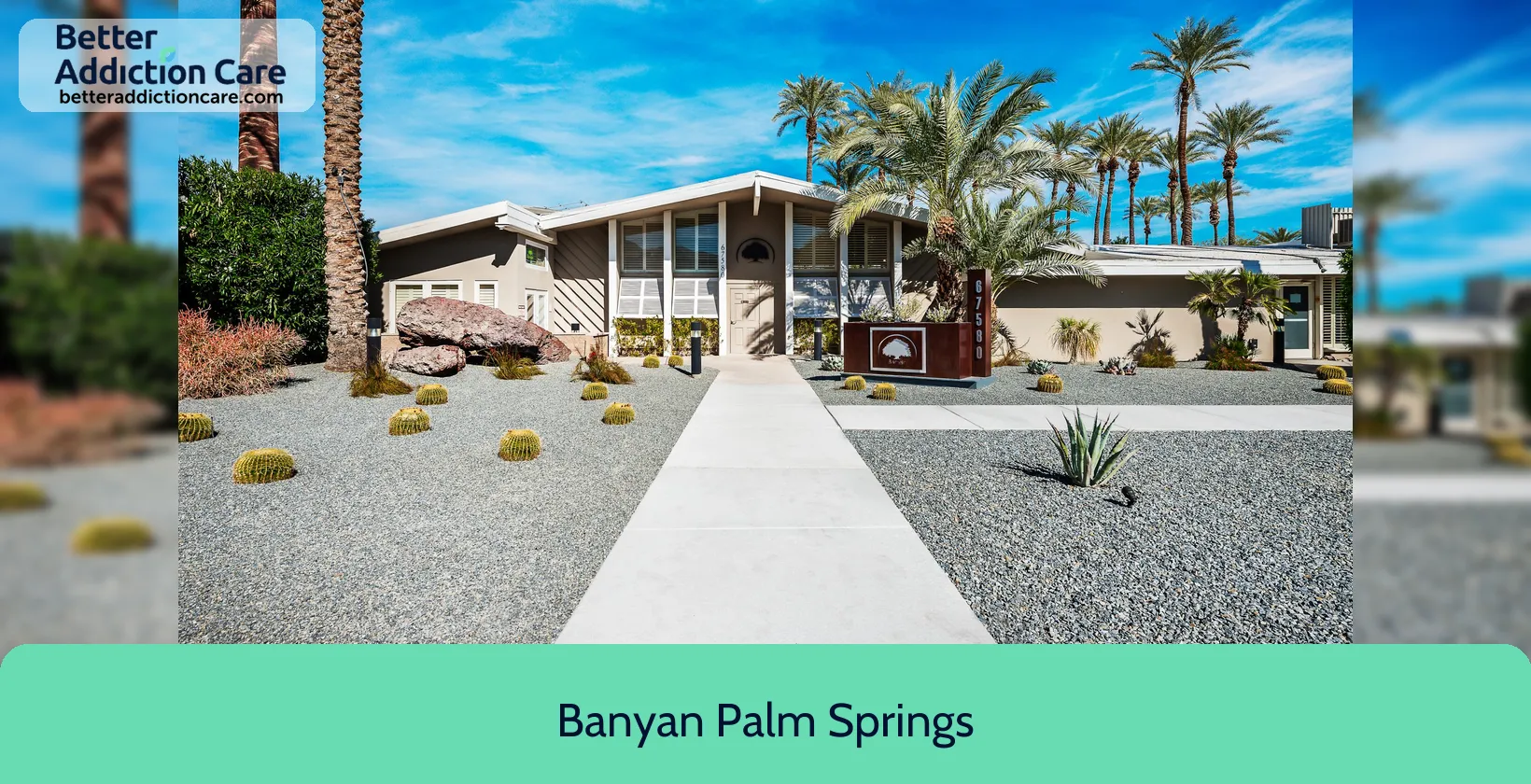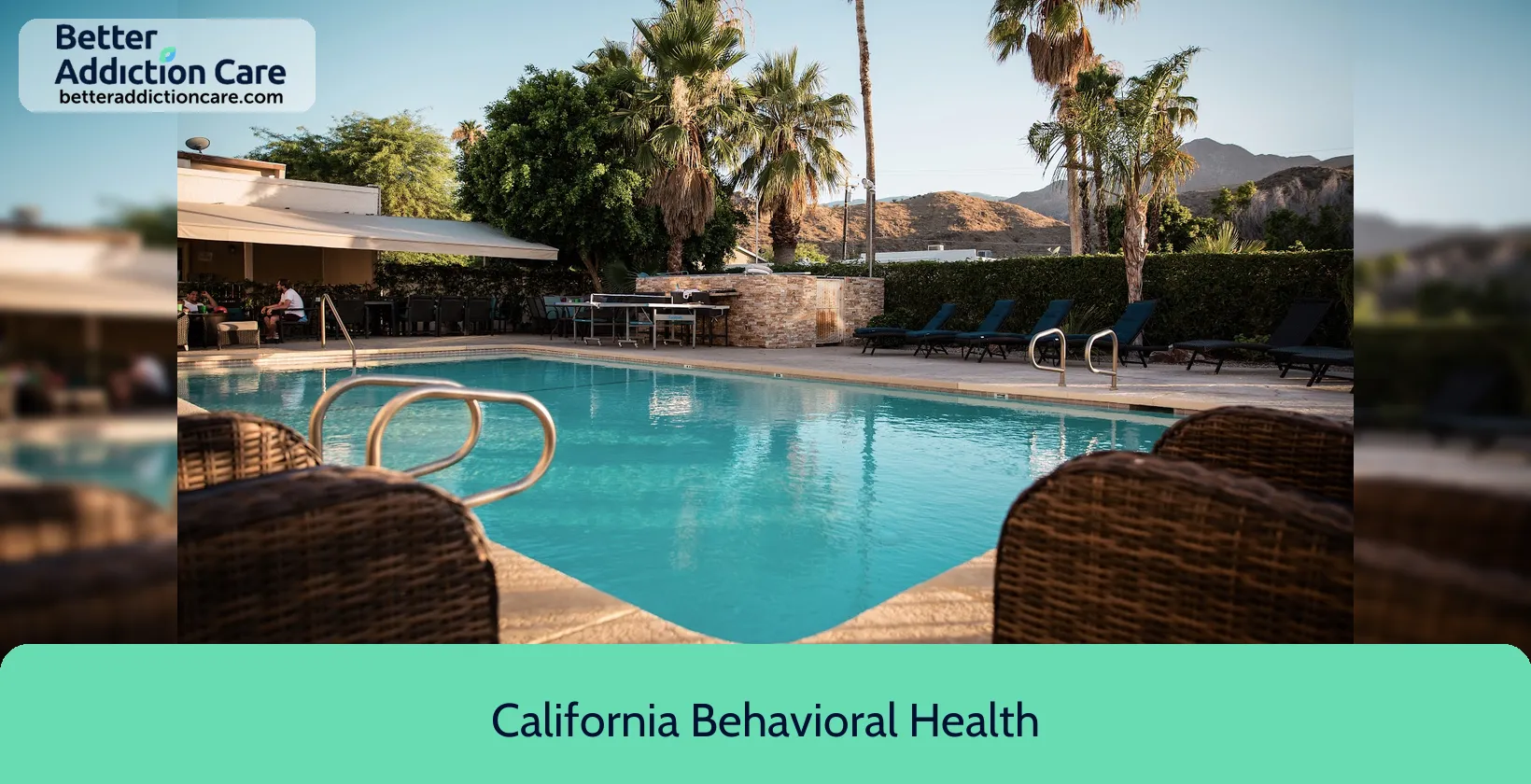Recover Palm Springs

Overview
Recover Palm Springs is a substance abuse treatment center for people seeking treatment near Riverside County. As part of their treatment modalities for recovery, Recover Palm Springs provides 12-step facilitation, cognitive behavioral therapy, and group counseling during treatment. Recover Palm Springs is located in Cathedral City, California, accepting private health insurance for treatment.
Recover Palm Springs at a Glance
Payment Options
- Private health insurance
- Cash or self-payment
- Blue Cross and Blue Shield Association
- Cigna
- Group Health Cooperative
Assessments
- Comprehensive mental health assessment
- Comprehensive substance use assessment
Age Groups
- Adults
- Young adults
Operation
- Private non-profit organization
Highlights About Recover Palm Springs
6.94/10
With an overall rating of 6.94/10, this facility has following balanced range of services. Alcohol Rehabilitation: 8.00/10, Drug Rehab and Detox: 6.62/10, Insurance and Payments: 6.53/10, Treatment Options: 6.61/10.-
Alcohol Rehabilitation 8.00
-
Drug Rehab and Detox 6.62
-
Treatment Options 6.61
-
Insurance and Payments 6.53
Accreditations
The Joint Commission:

The Joint Commission accreditation for addiction and behavioral health signifies that a facility has met rigorous standards in patient care, treatment, and safety. This recognition assures patients and professionals of the facility's commitment to providing high-quality, evidence-based care in the fields of addiction and behavioral health, fostering trust and confidence in their services.
SAMHSA certification for opioid treatment program (OTP):
SAMHSA's Opioid Treatment Programs (OTP) accreditation is a prestigious recognition that signifies a program's compliance with stringent standards and guidelines established by the Substance Abuse and Mental Health Services Administration (SAMHSA). This accreditation demonstrates an OTP's commitment to providing high-quality, evidence-based care for individuals struggling with opioid use disorder (OUD). It serves as a trusted symbol of accountability and excellence, assuring patients, families, and communities that the OTP offers safe, effective, and comprehensive treatment options for OUD.
Treatment At Recover Palm Springs
Treatment Conditions
- Mental health treatment
- Alcoholism
- Opioid Addiction
- Substance use treatment
- Co-occurring Disorders
Care Levels
- Intensive outpatient treatment
- Detoxification
- Outpatient
- Hospital inpatient treatment
Treatment Modalities
- 12-step facilitation
- Cognitive Behavioral Therapy
- Group counseling
- Family counseling
- Marital/couples counseling
Get Help Now
Common Questions About Recover Palm Springs
Contact Information
Other Facilities in Cathedral City

7.56

6.92
DISCLAIMER: The facility name, logo and brand are the property and registered trademarks of California Behavioral Health, and are being used for identification and informational purposes only. Use of these names, logos and brands shall not imply endorsement. BetterAddictionCare.com is not affiliated with or sponsored by California Behavioral Health.
